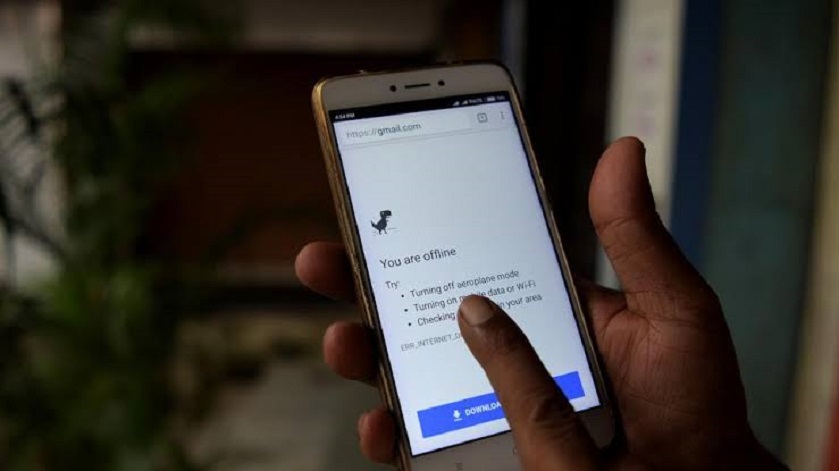The Sound of Disconnection
By: Javid Amin | 28 Aug 2025
Aahat si kahin hoti hai to lagta hai ki tum ho.
A simple line of poetry, yet it captures Kashmir’s paradox. Elsewhere, a network outage is an inconvenience. In Kashmir, it is a haunting echo of memory. Each moment of silence brings back an unease—of August 2019, of clampdowns, of midnight rumors, of truths revealed only days later.
When the Valley went dark again this week amid devastating floods, the immediate assumption was natural: towers down, fiber lines cut, electricity failing. But in Kashmir, nature is never the only suspect. Silence has always been political too.
Floods, Telecoms, and Fragile Infrastructure
The Valley’s topography is unforgiving. Heavy rains triggered floods and landslides, crippling not only roads but also telecom lines. Companies like Jio and Airtel rushed with “relief packages”—free data, validity extensions, and grace periods. On the surface, these gestures look generous.
But beneath, the fragility is telling. There is no real disaster-proofing of networks. No backup systems to guarantee uninterrupted access during crises. Instead, cost-cutting and tariff hikes dominate telecom strategy. The consumer pays more but remains disconnected when they need connection the most.
For a society that has already lived through the world’s longest internet shutdowns, this lack of resilience feels less like oversight and more like betrayal.
Rumors in the Silence
Floods explain the outage. Yet, in Kashmir, explanations are never enough. Silence itself becomes a message.
This week’s blackout revived whispers that “something big is on the cards.” For weeks, chatter has circulated about possible administrative or political moves—changes in land policies, domicile rules, or new security measures. Each disconnection, whether intentional or accidental, seems like a rehearsal for the next announcement.
This isn’t paranoia. It’s learned behavior. In 2019, before the abrogation of Article 370, Kashmir went offline without warning. When the silence broke, the Valley’s identity had been rewritten. That memory lingers in every outage since.
Pro-Kashmir or Anti-Kashmir?
The reactions split into two predictable narratives:
-
Pro-Kashmir reading: Relief packages by telecoms, government focus on flood rescue, and engineering teams restoring connectivity show genuine effort to stabilize life.
-
Anti-Kashmir suspicion: The absence of long-term network planning, repeated neglect, and the casual normalization of blackouts suggest that Kashmir is always an afterthought—left to survive between disasters, both natural and political.
Perhaps both readings are true. Kashmir lives in a liminal space where corporate profit motives meet political experiments, and people remain suspended in uncertainty.
Beyond the Outage: The Real Wound
The real story isn’t the flood or the telecom relief. It’s the erosion of trust. In Kashmir, silence isn’t neutral. Every dropped call feels like a warning. Every blackout feels like a curtain being drawn.
Connectivity is no longer just about technology. It is about dignity, access, and truth. To cut Kashmir off is to return it to an island state—where rumors run faster than facts, and people survive on speculation.
The aahat—the faint sound you described—perfectly embodies this: the sense that something unseen, something larger, is always moving in the shadows.
What’s on the Cards?
Speculation remains rife:
-
Administrative changes that could alter land or domicile laws.
-
Security-driven clampdowns tied to militant activity or protests.
-
Narrative management before major political moves.
Or, perhaps, nothing at all—just floods and fragile towers. But in Kashmir, “nothing at all” is rarely believed.
Bottom-Line: When Silence Speaks Louder than Words
The Valley’s latest outage will pass. Networks will return, companies will advertise their relief measures, and life will resume. But the wound is deeper.
Every blackout is not just a gap in service—it is a reminder that in Kashmir, silence itself has meaning. Whether pro-Kashmir or anti-Kashmir, natural or engineered, the outages reveal a truth: the people of Kashmir remain permanently suspended between connection and disconnection, trust and betrayal, rumor and reality.
And so, when a faint aahat echoes, they brace themselves. Because in Kashmir, silence always means something.



